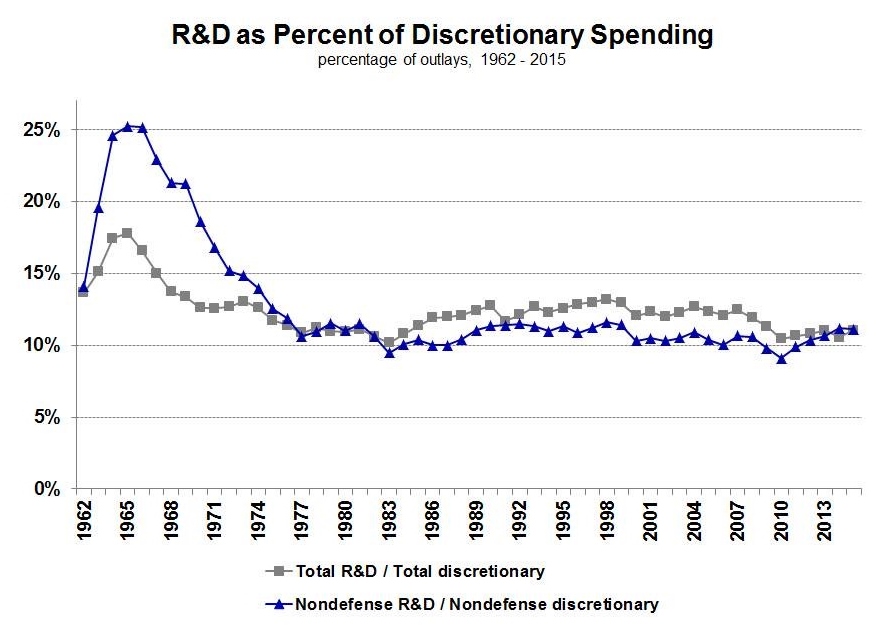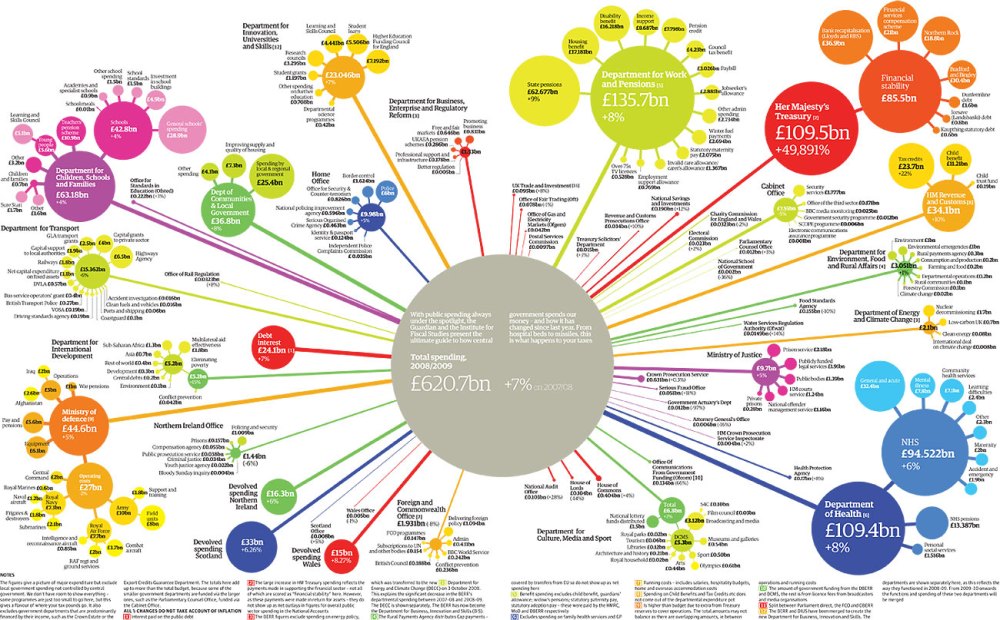Advancements in science have undoubtedly always been a driver for financial gain. But despite science’s primordial role in catapulting countries into economic preeminence, science has not had its fair share of spending. Most countries tend to spend 1-3 % of their GDP on R&D, the majority of which is constituted by private non-federal contributions. This is indeed quite disproportionate with the amount of wealth that advances in science in turn often do generate.
In fact, much of the R&D funding in North America is directed towards development rather than fundamental research. In the US for instance, non-defence funding has stagnated at 11 % of domestic discretionary spending for 40 years. Defense R&D spending, on the other hand, has continually constituted more 50-70 % of the total federal R&D funding for the past few decades. Basic research which is undertaken on undirected grounds is not goal-specific and as such, its economic value is always downplayed by the government. However, it is the intellectual background provided by fundamental research upon which all practical derivations of technological use continually thrive and rest. Accordingly, the practical significance of advances in knowledge should never be underestimated. 23 % of America’s economic growth from 1950 to 1962 has been attributed to such “advances in knowledge” (Denison, 1967). Technological change is in essence characterized as advances in knowledge, wherewith reductions in unit cost are achieved (Denison, 1974).

As fundamental research often involves the theoretical inquisition of natural phenomena, discoveries cannot be patented and thus, often cannot be financed by the private sector. Therefore, the political unanimity of financing fundamental science to a reasonable degree must be achieved by the government. Indeed, studies have shown that innovations most always stem from basic research (Rossini and Bozeman, 1977).
In the United Kingdom, the science budget is £ 3.5 billion out of £620 billion (All of UK’s science comes from just about 0.5% of the total GDP). In return, 6.4 % of Britain’s GDP comes from physics-based industries and businesses which contribute £ 70 billion to the economy. But yet, grant incomes to physics departments are curtailed in half, in what should have serious implications on return. Private investment is also quite low, at £ 30/40 million a year for physics and astronomy.

With Brexit in full effect, one cannot help but wonder how Britain will manage to keep its leadership in science? The UK has received grants from the EU more than any other EU member country. Since 2007, the UK has received 22% of all allocated funds ($1.5 billion since 2014) and research council spending increased by 7%. Since 10 % of UK funding comes from the EU, it is a worrying concern whether Brexit would amount to spending cuts for science.

But, the real concern is why we spend very little on science in general when its potential for financial return is many orders of magnitude greater. Major scientific achievements of the past century have hinged upon very little funding but yet have created new markets and enabled tremendous economic expansion. Return on the investment always comes in the form of technological innovation. On average, R&D returns about $7-$8 for every $1 invested. Indeed, for every dollar spent on the Apollo missions, fourteen were returned back into the US economy. But yet, NASA’s budget is half a penny on a tax dollar. We spend many order of magnitude higher than that on movies and basketball games. Football clubs waste millions of pounds hiring people to run around on a field, but nobody bothers to question the “practical significance” of spending money on football games. It is only when science is involved do we hold matters to much more rigorous standards and keep obsessing about value and relevance.
Bibliography
Denison, E. F. 1967. Why Growth Rate Differ. Washington, DC: The Brookings Institution.
Denison, E. F. 1974. Accounting for the United States economic growth, 1929-1969. Washington, DC: The Brookings Institution.
Rossini, F. and B. Bozeman. 1977. National Strategies for Technological Innovations. Administration and Society 9(1): 81-111.
Featured image credit: CERN
One thought on “Why do we spend very little on science?”